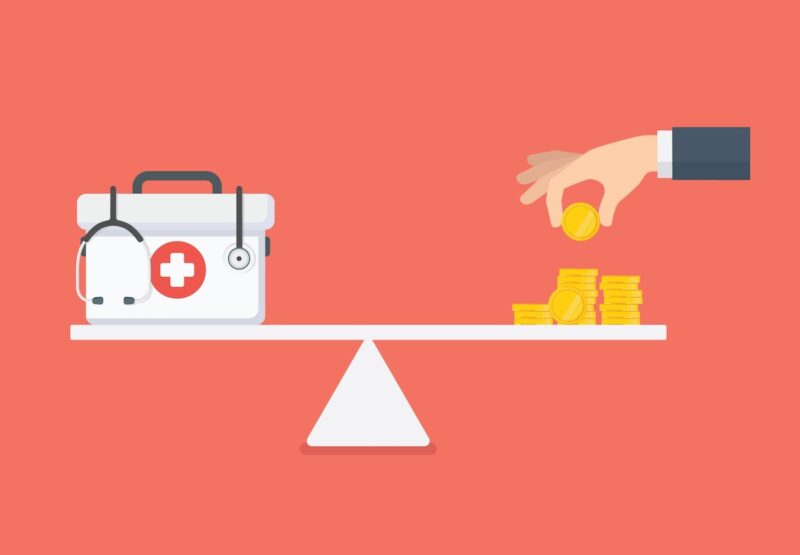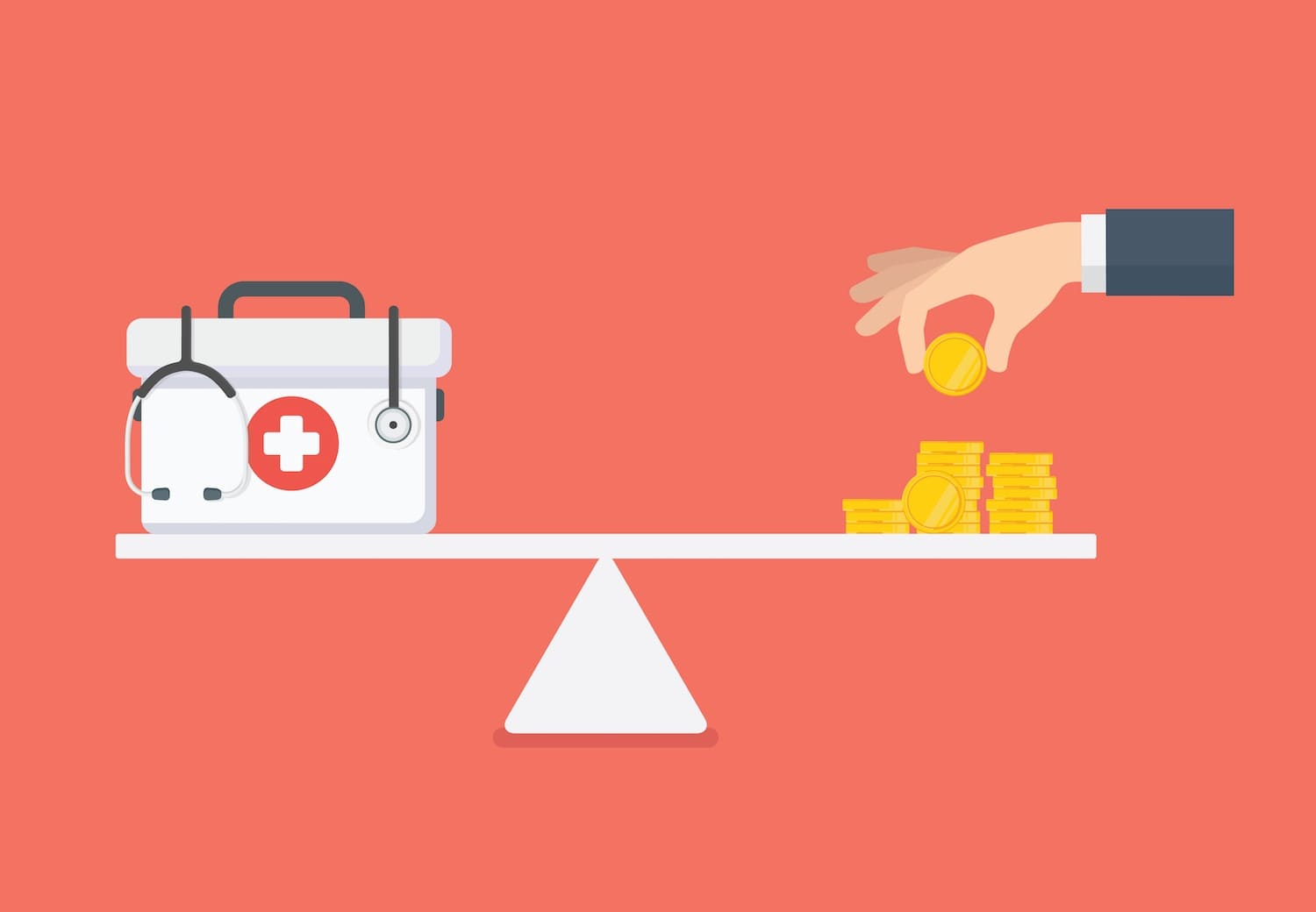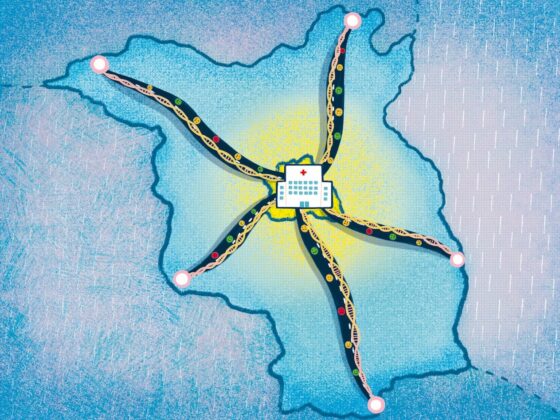Among older adults with advanced cancer, those judged to have financial issues experience worse quality of life, with the adverse effects including higher levels of depression, anxiety and distress. The study, reported in JAMA Network Open (published 7 December), highlights that less than half of cancer patients with financial problems have their issues addressed by health care professionals and proposes an easy three question screening tool for identifying problems.
The financial toxicity of cancer refers to both the monetary burden of paying for cancer care as well as the negative consequences treatment has on the patient’s financial security. Financial toxicity has been associated with both immediate and long-term consequences including treatment nonadherence, decreased health-related quality of life, bankruptcy, and an increased risk of mortality. In 2014, ‘The Cost of Cancer’ by the American Cancer Society found that cancer care spending reached $87.8 billion in the US, with $3.9 billion of that representing patient out-of-pocket expenses.
Recognising older adults with cancer face a unique set of financial pressures compared to the general population, Arpan Patel (University of Rochester School of Medicine, Rochester, NY) and colleagues undertook the COACH study, a qualitative and quantitative study of financial toxicity in 536 patients with advanced cancer aged ≥70 years from 31 community oncology practices across the US.
For the study, patients (who had a mean age of 76.5 years) underwent a baseline screen involving three questions relating to financial hardship:
- Q1. At any time in the past three months have you taken less medication than was prescribed for you because of the cost?
- Q2. When you think about the amount of income that you have available in a typical month, is there enough for your food and housing costs?
- Q3. When you think about the amount of income that you have available in a typical month, is it enough for things you really need like clothing, medicine, repairs to the home or transportation?
If patients answered ‘yes’ to Q1 or ‘no’ to Q2 or Q3, they were categorised as meeting the financial toxicity criteria. Patients additionally completed validated instruments assessing health related quality of life (HRQoL) including the Geriatric Depression Scale, Generalised Anxiety Disorder 7-Item Scale, National Comprehensive Cancer Network distress thermometer, and Functional Assessment of Cancer Therapy-General.
Overall, 98 patients were judged to have financial toxicity, with 19 patients responding ‘yes’ to Q1; 41 ‘no’ to Q2; and 89 ‘no’ to Q3 (some patients met financial toxicity criteria for more than one question). Results of multivariate regression analyses found financial toxicity was associated with higher levels of depression, anxiety, and distress and lower HRQoL. Among those revealed to have financial toxicity, 48% had a conversation with their health care professional around cost.
In total 94 audio recordings of interactions between health care professionals and patients judged to have financial toxicity were available for review. Conversations relating to cost were documented in 46 transcripts (48.9%), with conversations initiated by oncologists in 41.3% of cases, patients in 38.1%, caregivers in 15.9%, and nurses in 4.8% of cases. Four main themes emerged – statements regarding the cost of medications and medical equipment (identified in 49.2% of conversations and initiated by patients and carers in 58.1% of cases); the ability to afford prescribed care (identified in 14.3% of conversations and initiated by oncologists in 88.8% of cases); indirect consequences associated with ability to work or provide for family (identified in 14.3% of conversations and initiated by patients and caregivers in 77.8% of occasions); and the cost burden of non-treatment domains (e.g. transportation, identified in 22.2% of discussions and initiated by patients in 57.1% of occasions).
The study, say the authors, demonstrates the ‘potential gap’ existing between the patient’s experience of FT [financial toxicity] and discussions with health care professionals. “Patients may feel ashamed or embarrassed discussing personal finances and oncologists may not feel equipped to handle or comfortable with these conversations,” write the authors.
Introducing the three simple questions into the consultation, suggest the authors, could be used by oncologists with limited time to serve as a quick tool to identify financial toxicity. Local resources that could then be made available include access to patient navigators, financial counsellors, support groups, transportation vouchers, and co-pay assistance. “Future studies should evaluate if interventions addressing FT will improve HRQoL and care outcomes,” add the authors.
Francesco Perrone, from the the National Cancer Institute of Naples, Italy, commented to Cancer World, “This interesting paper focused on elderly patients. However, many other papers have been published showing financial toxicity is more challenging among patients who are still actively working. These patients frequenctly see their income dramatically decrease due to cancer and cancer treatments. This is an important group to study as the effects of financial toxicty can significantly impair efficacy of treatment.”
The issue of financial toxicity, Perrone adds, also exists in Europe. In a pooled analysis of over 3500 cancer patients enrolled in 16 Italian clinical trials, he showed that around a quarter of subjects had experienced financial problems (measured by item #28 of the EORTC QLQ C30 questionnaire) and that this correlated with worse outcomes. However, Perrone questions whether the three questions highlighted in the paper would provide a useful screening tool for European patients. “These questions are useful in the US, where the elephant in the room is the personal cost of the anticancer drugs for patients, but aren’t so helpful in Europe where patients generally don’t pay for their cancer treatment. In Europe we need to better understand the weaknesses of the welfare system that produces financial toxicity and negatively impact on cancer patients.”












